If you have an intelligent, friendly parrot that doesn’t seem to be talking much, take heart! Learning how to train a quaker parrot to talk does not have to be as difficult as you may think! While these birds are extremely smart and willing to please, they can have difficulty vocalizing the sounds we expect from them if they have not been taught from a young age. Follow these 10 tips for training your quaker parrot to talk, and soon you’ll be able to listen in on your bird’s innermost thoughts without him saying anything at all!
1) Start with baby steps
Contents

Though some birds seem eager to mimic your words from Day 1, most experts recommend starting with simpler sounds first. If you start out trying to teach them too many words at once, it can be confusing and frustrating for both of you, Kelley says. He suggests picking one word—like hello or bye-bye—and repeating it often when you greet your bird each day. Soon enough, he should be mimicking your word back at you!
2) Choose your words carefully
If you want your bird to learn how to talk, then you’ll need to use words that won’t confuse him. Learning any new language is difficult enough; do your bird a favor and choose his words carefully. Avoid homonyms (words that sound like other words) like bear (as in animal or care), for example. With some practice, he’ll start learning which word goes with which meaning and will be able communicate more clearly and effectively.
3) Model correct pronunciation
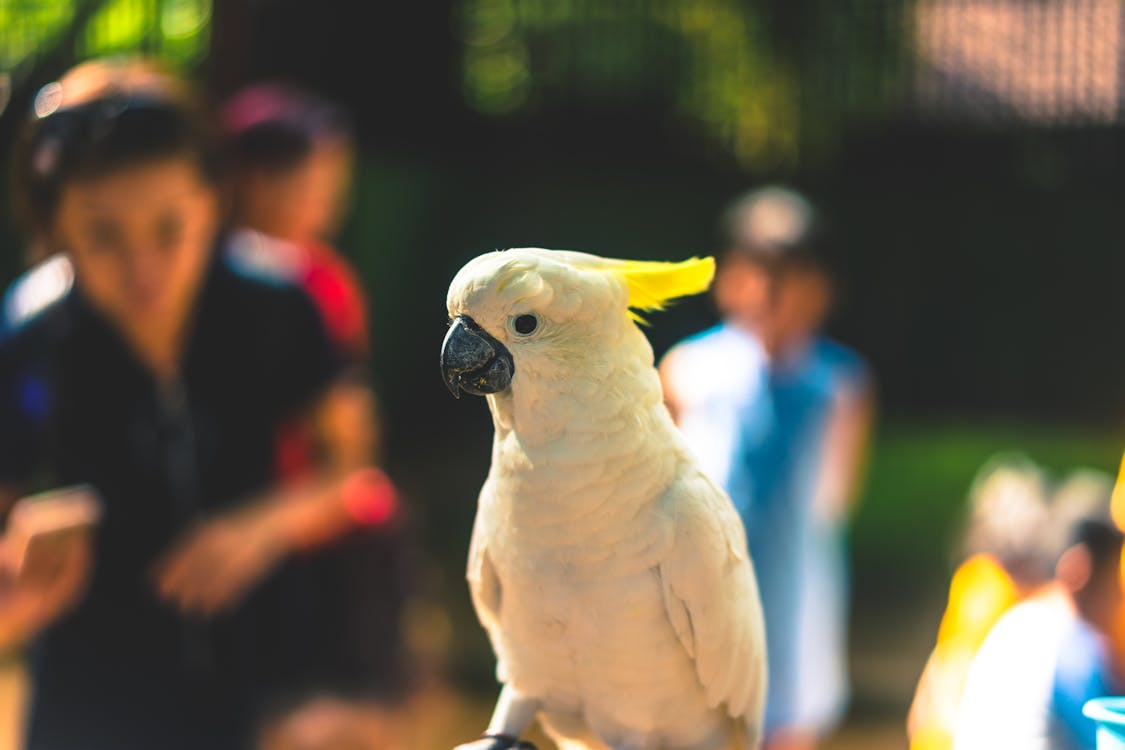
When you’re training your quaker parrot, it’s important that you model correct pronunciation. This means making sure to enunciate and speak clearly. A bird will pick up on your patterns of speech over time, so make sure they don’t mimic slurred or mumbled words. The clearer you are in speaking, the easier it will be for your bird to imitate you.
4) Have realistic expectations
Let’s be honest: Any bird can learn to mimic sounds, and every one of them will say pretty bird and other pleasantries—but parrots who can speak like characters from Sesame Street or The Simpsons are few and far between. If you want your parrot to talk like a Disney character, don’t get a quaker parrot. But if you want a cute little friend who can tell you about its day, then getting one is an excellent idea.
5) Use positive reinforcement
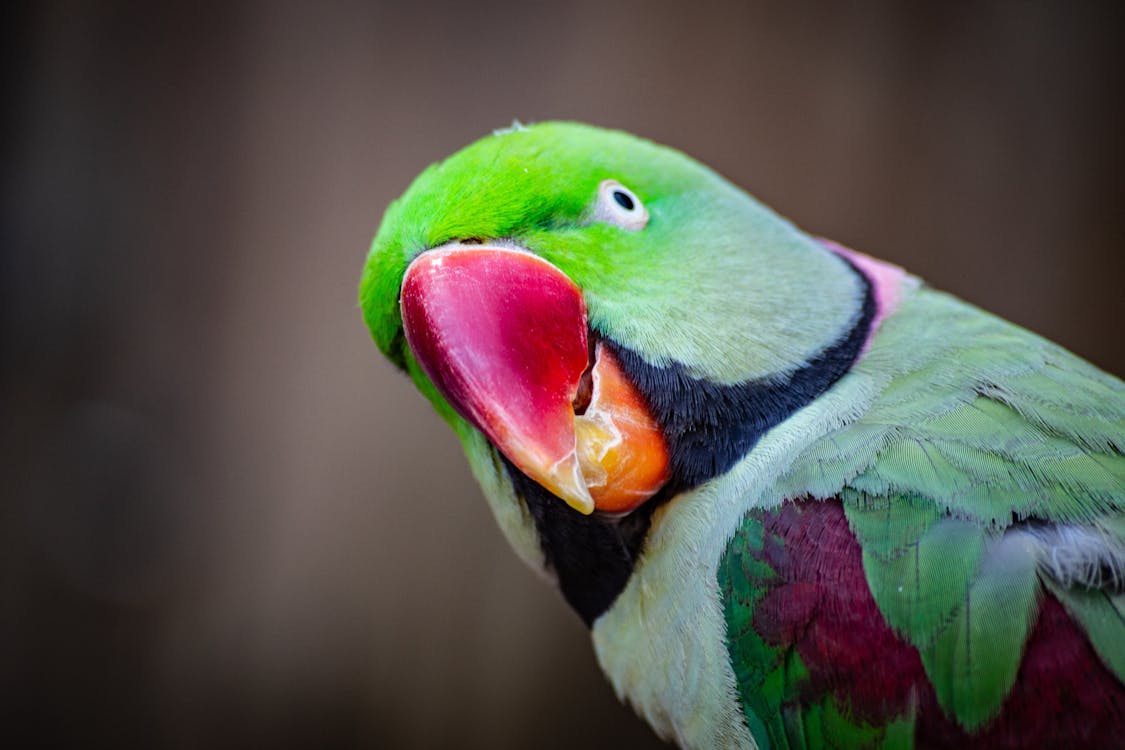
The best way to encourage your parrot to talk is by using positive reinforcement. The point here is not punishment, which can cause birds that were once open and friendly to become closed off and skittish around you. And while a little bit of discipline might be necessary during training, it’s important not to go overboard when disciplining your bird. It’s far better in the long run for you and your pet if he learns from his mistakes than if he becomes afraid of making them at all.
6) Show them how it’s done
When it comes to parrots, it’s not about talking but training. If you want your birdie to learn how to speak, you have to take control of their training. This means being consistent with your efforts and using an effective technique that’s appropriate for your particular pet. The most important thing is always giving them positive reinforcement when they do what you want them to do. Never scold or yell at them or you might scare them away from learning how talk altogether!
7) Know when to let go
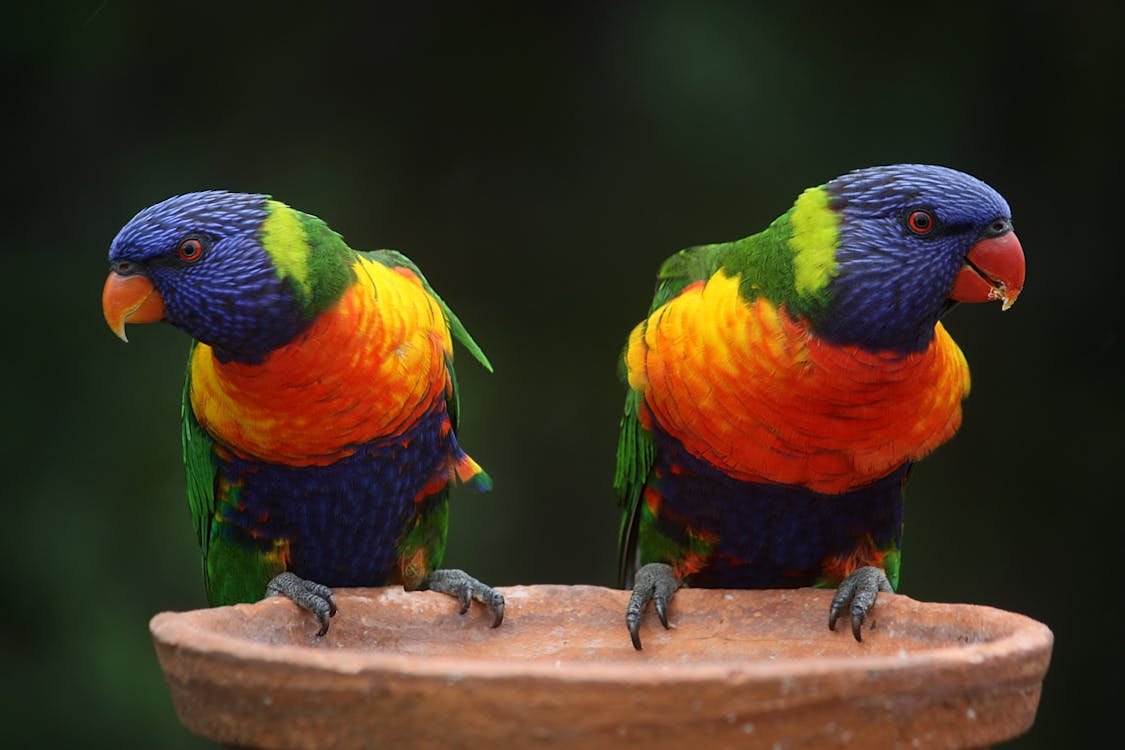
Not all parrots are destined to become chatty, mimic machines. In fact, you may find that some of your birds never do talk or mimic at all. Be prepared for that! If you have realistic expectations about what training your bird is going to be like, and accept whatever level of communication he ends up with, you’ll both be much happier.
8) Move slowly and deliberately
Don’t move too quickly, as your quaker will feel rushed. Instead, take small steps toward your training goals and reward him/her when he/she exhibits positive behavior. Reward s are crucial in encouraging quakers to learn new behaviors. Keep your lessons short: Since you’re moving slowly, it’s better to keep lessons short—approximately 5-15 minutes at a time—so your bird doesn’t get bored. Slow and steady wins the race.
9) Don’t be discouraged by mistakes
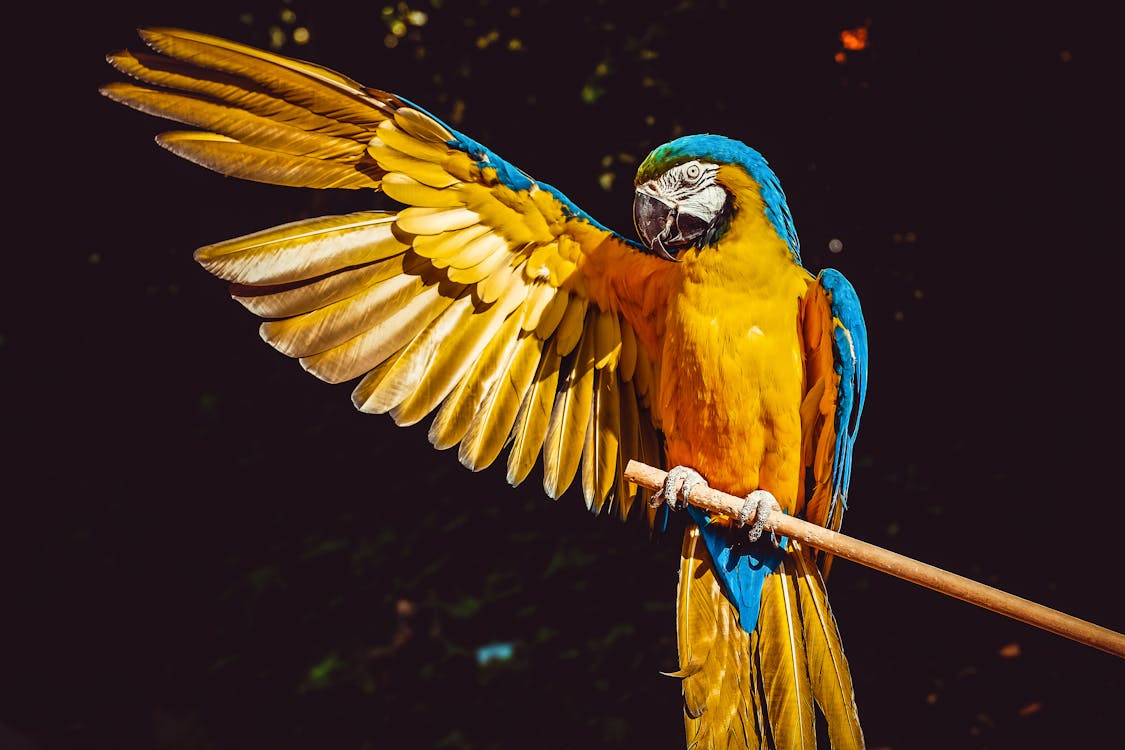
Like most skills, talking is one that requires practice. If your bird makes mistakes, don’t get discouraged. Instead, encourage and reward him when he talks correctly by saying something like yes! or that’s right! and giving him a treat. But don’t praise him if he repeats an incorrect word! This will only reinforce his bad habit of saying incorrect words again and again until they become habit. It is best to ignore them completely or say no.
10) Take note of what works
Like all animals, parrots learn best when they receive rewards. After training your quaker parrot to use an exercise wheel, be sure to give it lots of praise. Whenever you pet your bird, make sure that you get in some affectionate words like That’s my good girl! or You did it! Even just saying good girl often enough during daily chores will get her used to hearing your voice and associating those kind words with good things.


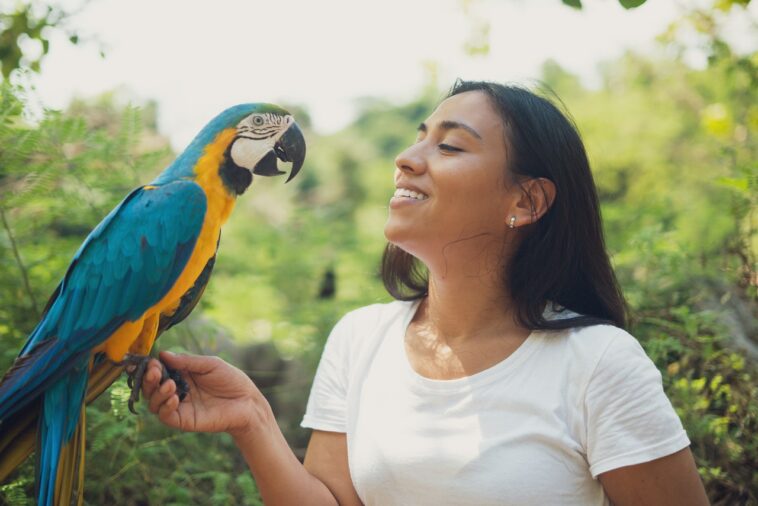
GIPHY App Key not set. Please check settings